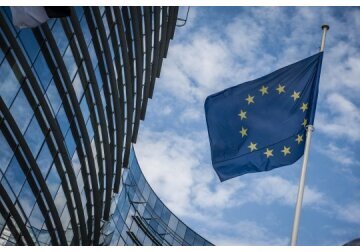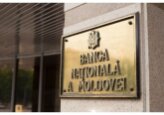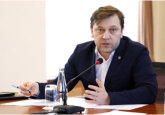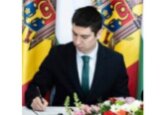
The EU will allocate 9.5 million euros to strengthen Moldova's ability to face national security challenges and support the EU integration process
This financial assistance will be granted to Moldova within the EU4 Moldova Resilience – Secure State, Resilient Communities Project, financed by the European Commission through the Foreign Policy Instruments Service (FPI) and implemented by Solidarity Fund PL in Moldova. The main objective of the project is to create a safer environment for Moldovan citizens by strengthening the capacity of public institutions to protect critical infrastructure and effectively manage emergency situations. During the project launch, Peter Wagner, Head of Foreign Policy Instruments (FPI), said that Moldova is taking important steps to improve its resilience and the safety of its citizens. The project being launched is designed to reinforce these efforts by investing in important areas such as civil protection, infrastructure and rural development. It is specifically designed to address the needs of both urban and rural communities, improve their ability to cope with emergencies, improve social cohesion and stimulate economic growth. The project will assist in equipping Ministry of Internal Affairs’ institutions with the protective equipment and machinery needed to ensure safety and rapid response in critical situations. At the same time, 10 volunteer fire stations will be built by November 2025, while another 10 will be reconstructed and equipped with personal protective equipment. Interior Minister Adrian Efros emphasized that all these investments will allow identifying and counter potential threats to national security. Community volunteer firefighters will play a crucial role in emergency measures, ensuring a quick and effective response in case of fire or other critical situations. In addition, the EU4 Moldova Resilience – Secure State, Resilient Communities Project will support sustainable development in rural areas of the country. Five settlements will be selected to implement the “Smart Village” concept, each of which will receive 80 thousand euros for innovative projects. Also, investments in photovoltaic parks will be made in these villages with a budget of up to 190 thousand euros per settlement. At the same time, 5 towns will receive funding of 200 thousand euros each for urban revitalization projects aimed at improving the quality of life of residents. Also, 12 municipal enterprises will be equipped with special machinery, solar panels or other alternative energy technologies. These measures aim to increase the capacity of local partners and improve the resilience of local communities through urban revitalization projects and infrastructure investments that will contribute to improving the living standards of urban populations from disadvantaged areas. “Solidarity Fund PL in Moldova has the experience, presence and capacity to implement this project. We believe that through an international solidarity approach, we will be able to build a sustainable partnership that will strengthen our bilateral relations with both Poland and Moldova, as well as with our European partners, making us safer and more resilient,” said Solidarity Fund PL Moldova Director Przemysław Musiałkowski. Special emphasis will be placed on combating misinformation through information campaigns to raise public awareness of the security risks and benefits of EU integration. An integrated approach combining capacity building, infrastructure investments and direct funding will ensure a sustainable impact and help build resilience at both central and local levels. “It is planned that through the successful implementation of this project, Moldova will be better prepared to meet any challenges and continue on its European path,” added the EU4 Moldova Resilience – Secure State, Resilient Communities Project Manager Nicolae Soloviev. The project will last for 18 months and involves cooperation with the Interior Ministry and its subordinate institutions, the Ministry of Infrastructure and Regional Development and the Ministry of Agriculture and Food Industry. // 04.09.2024 – InfoMarket







